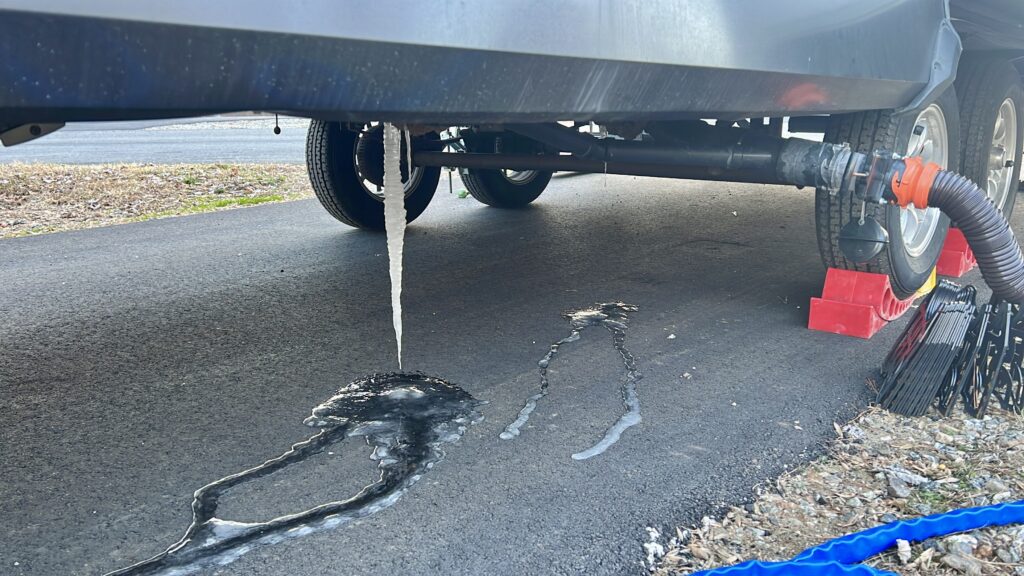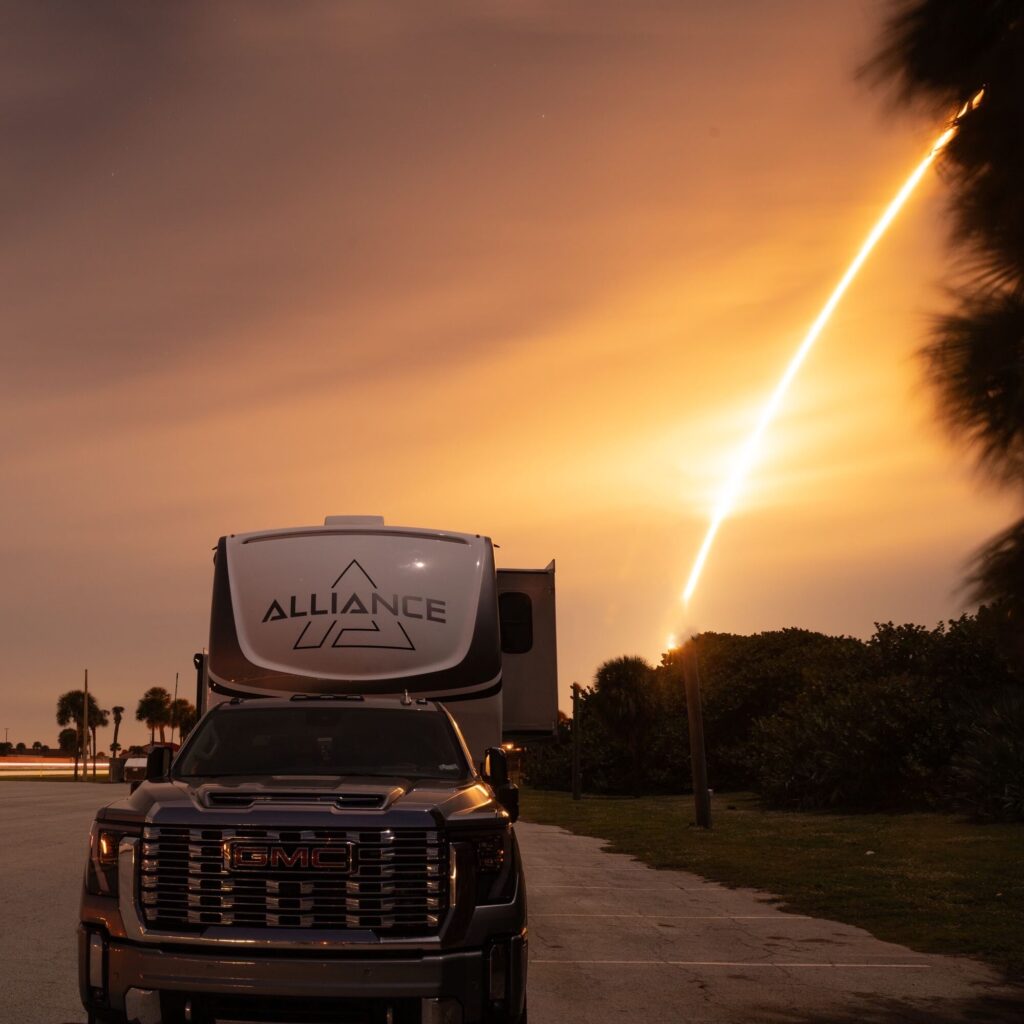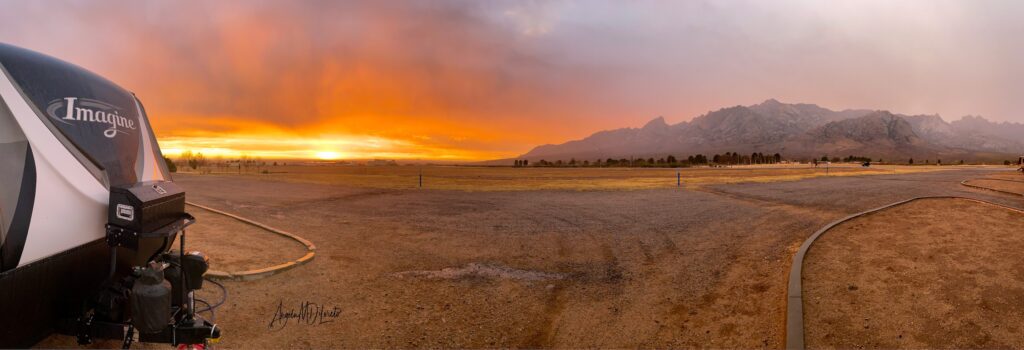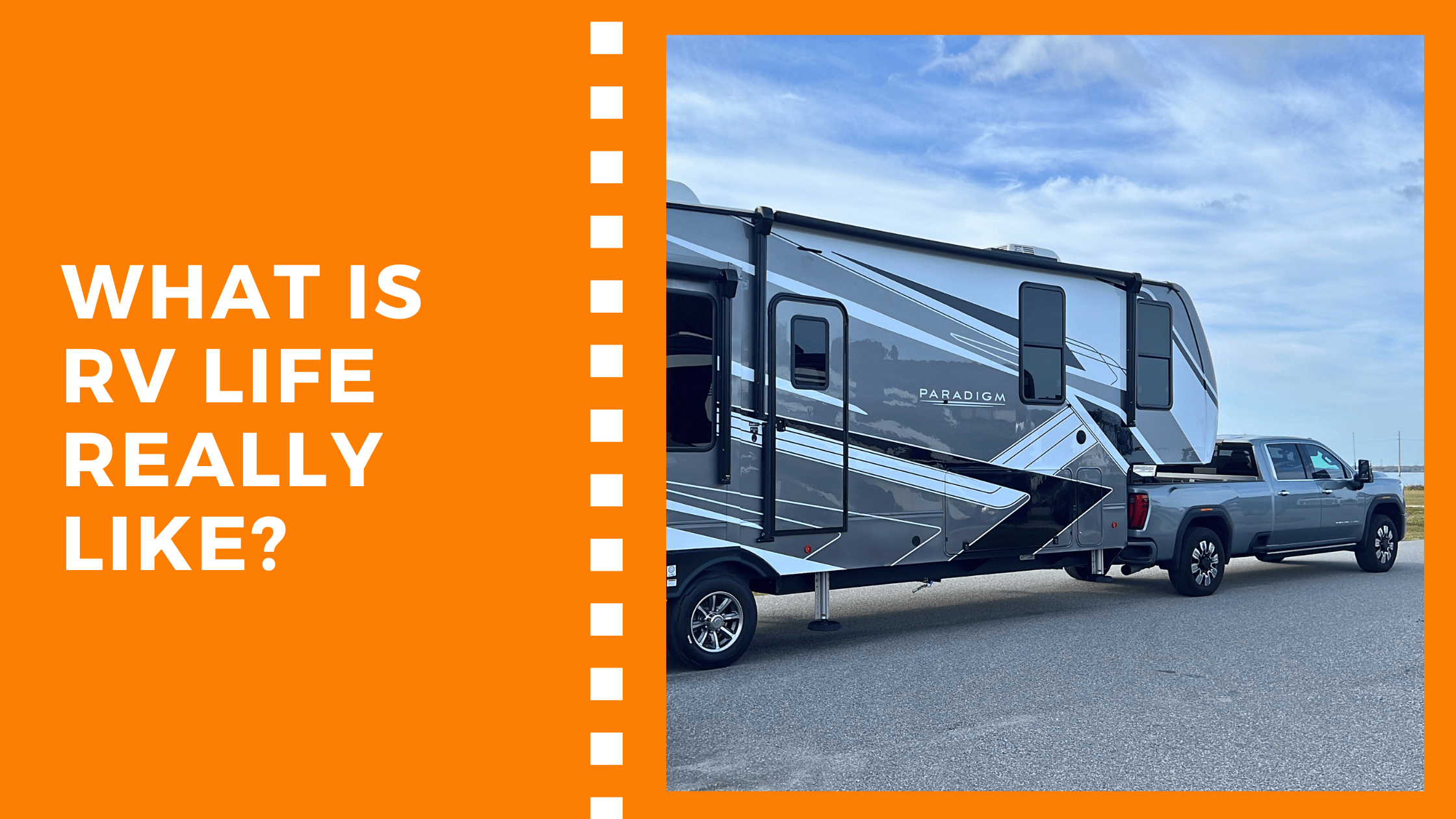When discussing RV life, two contrasting images often come to mind: the idea of wide-open spaces and carefree living, or the comedic struggles portrayed by Robin Williams in the movie RV. Despite extreme opinions on both sides, the reality of RV life typically falls somewhere in the middle on most days.
Disclosure: Some links on our site are affiliate links. If you purchase a linked item, we will make a commission, at no extra charge to you.
Boondocking
We won’t be in parks. We will solely/mostly boondock for free.
Many RVers believe that they will spend all of their time boondocking or moochdocking, which means camping without any hookups (no water, sewer, or power) and no fees. However, this is not realistic for most RVers. The Bureau of Land Management limits the amount of time that can be spent on public land, and friends and family will typically limit the amount of time that can be spent moochdocking. As a result, most RVers end up staying in private campgrounds, national/state parks, or military family campgrounds.
Some RVers prefer the peace and quiet of boondocking, while others enjoy the amenities and activities offered by private campgrounds and national/state parks. Military family campgrounds are a good option for RVers who are looking for a balance between affordability and amenities.
Private campgrounds typically charge between $30 and $500 per night, depending on the amenities offered and location. National/state parks usually charge between $10 and $40 per night, but they often do not have full hookups. Military family campgrounds are the most affordable option, typically charging between $10 and $30 per night. They also typically offer full hookups, making them a great option for RVers who want the convenience of amenities without the high price tag. However, you must “qualify” for usage of military fam camps with prior or current military service. The factors may vary by base so check with the parks.
Too Young?
Only old people RV.
We often get asked if we are the youngest in the park. The answer is typically no. With the rise in work-from-home positions and homeschooling, we are typically surrounded with all ages.
Privacy
We will have the same privacy we currently have in our home.
RVs are NOT homes. The walls are thinner and your neighbors in places like Florida will be close. Like very close. If you are outside or open your windows you may hear their TV.
Even inside your own RV, you will not have the privacy you are used to in a home. The bathroom has a lightweight door and is typically a few feet away from others in your RV. Take that as you will.
Discussions
Your conversations ummm… change.
What does that mean? You talk about poop a LOT.
“The tank is full.”
“We need to order more black tank treatment.”
“When is the last time the dog pooped.”
There is just a lot of poop talk. Plus see above about privacy inside your RV.
Loneliness
RV life will be lonely.
Many people have asked if living a nomadic lifestyle is lonely, as you travel away from friends and family. The answer is no, this lifestyle is anything but lonely. You are constantly meeting new people, and many of them become lifelong friends that you look forward to seeing again and again.
Planning
We don’t need a plan. We will just go where the road takes us.
When we bought our first RV in 2018, I thought it would be simple: just drive and pull into a park for the night. No planning, no schedule. But I was wrong. Planning starts with your route. Is it RV-friendly? How many gas stops will you need? And if you have a large RV, are there truck stops where you can get gas? Then you have to find a park with open space. Before 2020, this could be difficult, but after the explosion in RV popularity in 2020, spots fill up quickly, especially in popular places like Florida in the winter. We typically book our reservations 60 days to one year in advance.
We like RV Trip Wizard to keep track of our plans. Harvest Host is a great option to fill in one night in many areas.
Internet
Internet connectivity won’t be an issue.
Actually, you might be right for months and suddenly you will be wrong. Starlink won’t always get a good “view” in heavily wooded parks. Hotspots are not always great either. Have backup options and plans if it is a necessary part of your RV life. You may be correct for months, but you may suddenly be incorrect.
We use Starlink with a hotspot backup from Calyx Institute.
No Exit Plan
We will do RV life forever.
You will not live the RV lifestyle forever. Do not spend all of your savings on an RV. Have a plan for what you will do when you are ready to stop living on the road. RVs do not last as long as houses, so have money set aside for repairs, which can be expensive.
RV Life
You’re not living RV life if you aren’t a full-time RV.
Determine your own course. Full-time RV living is definitely not for everyone. Find what works for you, but definitely start slowly and with trial runs.
Must-Haves
What are the RV must-haves?
The question of what RV essentials you need is one that is frequently asked in RV Facebook groups. There are a few things that you absolutely must have, such as sewer hoses, water hoses, an electric cord (30amp or 50 amp), a surge protector, a TPS system, an RV-capable GPS system and a rear-view camera. These are things that a dealer may allow you to leave without, but you really do need them. However, the lists you will find online are much more extensive. It is better to save your money, camp a bit, and determine your own needs.
Repairs
Our RV is new. We won’t have any repairs for a while.
I hate to be the bearer of bad news, but things will break when you move your RV, even if it’s a high-quality brand. Moving an RV is like an earthquake and your roof faces storm-force winds (65 mph) as you drive down the highway. Things are going to break. They will be expensive to fix, and it will happen at the worst possible time. Take a deep breath and go to the Facebook group for the specific RV model that you joined when you bought it. The owners there will have a wealth of information to help you in most cases. Sometimes, the only help they can offer is to tell you to call a mobile RV technician or head to the dealer. However, dealers are known to take a long time to make repairs, so this may not be an option if you are full-time RVing.

Four Seasons RVs
My RV is Four Seasons so I don’t need to worry about the weather.
Your RV is probably not suitable for all four seasons, even if it has a sticker that says it is. You need to be aware of the weather for several reasons. First, freezing temperatures can damage your RV if you don’t have enough insulation and tank heaters. Even if you have all of this, you may still be at risk of freezing. RV skirting is often used to stop the wind from blowing under the unit, and tank heaters can help, but you also need to make sure that your hoses are heated and that heat tape is used. Even then, you may still have problems. We choose to stay out of cold weather altogether when possible.
You also need to monitor the weather for severe weather, such as tornadoes. We experienced a tornado that was ⅛-mile from us one night in January in Texas. We’ve also evacuated in Florida to avoid hurricanes. Stay weather aware and always know where the shelters are located at a campground.

RV Life is Cheaper
RV life is cheaper than owning a home. We will save so much money.
You may be correct on a good month. However, repairs are typically more expensive and frequent. Additionally, you may not be able to stay in the RV while it is being repaired, which would leave you with other costs.

Tow Vehicle
I have a truck that will tow it.
First, never ask this question on Facebook. You will end with “needing” a giant truck to tow a tiny trailer. However, we have seen the opposite as well. Your Ford Ranger won’t tow that 40 foot 5th wheel. Please don’t do it. You will need to check your specific truck. Inside the driver door panel is a sticker specific to that truck. Start here. Compare the tow rating and pin weight rating to ensure you are safe and not endangering others on the road.
Down Days
Not scheduling “down” days.
It is tempting to keep going and see all the things you have dreamed of. However, you will also need time to relax. Part of the benefit of traveling with your home is having that opportunity. Don’t exhaust yourself. Travel at a slower pace.
RVing can be a great way to see the country and experience new things. However, it’s important to be aware of the potential challenges and misconceptions before you hit the road. By doing your research and planning ahead, you can avoid many of the common pitfalls and have a great time RVing.
All the headaches. All the planning. It’s all worth it for us!


